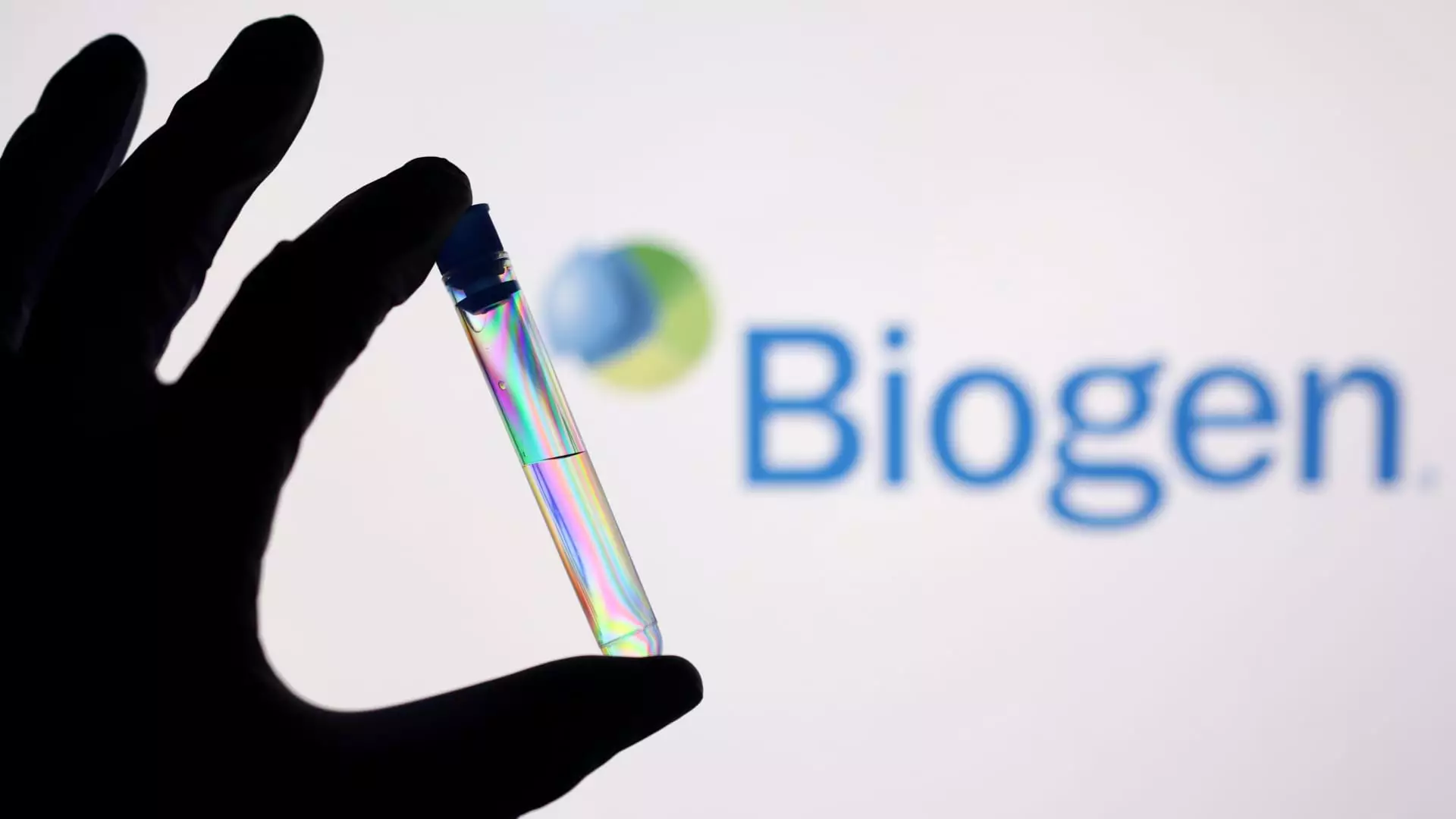Biogen’s recent announcement regarding its third-quarter performance has shone a spotlight on the company’s resilience and potential for growth. The biotech firm exceeded expectations for both revenue and adjusted earnings, a positive indicator for investors and stakeholders alike. The projected full-year earnings per share (EPS) has been adjusted upwards to a range of $16.10 to $16.60, a significant leap from the earlier forecast of $15.75 to $16.25. Despite this encouraging news, Biogen remains cautious, predicting a slight decline in sales for 2024 by a low-single-digit percentage, hinting at a complex market landscape ahead.
One of the key drivers behind Biogen’s improved outlook is the performance of Leqembi, a groundbreaking drug designed to slow the progression of Alzheimer’s disease. This treatment, developed in collaboration with the Japanese pharmaceutical company Eisai, garnered U.S. approval last summer and has since been a focal point of Biogen’s product portfolio. The launch of Leqembi has been marred by challenges, including stringent diagnostic requirements and logistical issues related to patient assessments. Nevertheless, recent data highlights a noteworthy increase in the drug’s adoption. In the latest quarter, Leqembi generated an impressive $67 million in sales, with $39 million attributed to the U.S. market alone—far surpassing analyst expectations of $50 million globally.
Impact on Multiple Sclerosis Products
While the uptick in Leqembi sales is promising, it’s important to recognize the ongoing challenges within Biogen’s other product lines, particularly those related to multiple sclerosis (MS). A year-over-year decline in the revenue generated from MS therapies has posed questions about the company’s sustained growth. However, the positive trajectory of Leqembi, coupled with newly launched treatments targeting rare diseases and depression, has provided a buffer against these downturns, illustrating Biogen’s strategic focus on diversifying its offerings.
Evaluating the financial metrics from the third quarter reveals both strengths and weaknesses. Biogen recorded revenues of $2.47 billion, representing a decrease of approximately 3% compared to the same period the previous year. Nevertheless, the adjusted earnings per share of $4.08 outperformed expectations of $3.79, signifying effective cost management and realization of operational efficiencies. The net income for this quarter stands at $388.5 million or $2.66 per share, a marked contrast to the net loss of $68.1 million recorded a year earlier. This turnaround showcases the potential for recovery and growth, suggesting that Biogen is navigating through its challenges with agility.
Biogen’s third-quarter results reflect a complex interplay of gains and hurdles. The surge in Leqembi’s sales is a beacon of hope for the company’s future prospects, showcasing an ability to penetrate the Alzheimer’s treatment market more effectively. However, uncertainties regarding the long-term sustainability of sales, particularly in its established MS segment, warrant caution. As Biogen positions itself for the upcoming fiscal periods, a careful balancing of innovation and management of existing product lines will be crucial in determining its trajectory. Investors and analysts alike will be watching closely as Biogen aims to solidify its place in the competitive biotech landscape.

